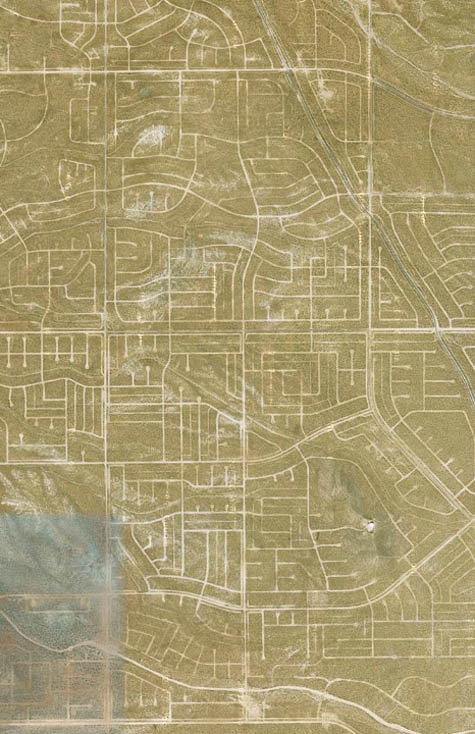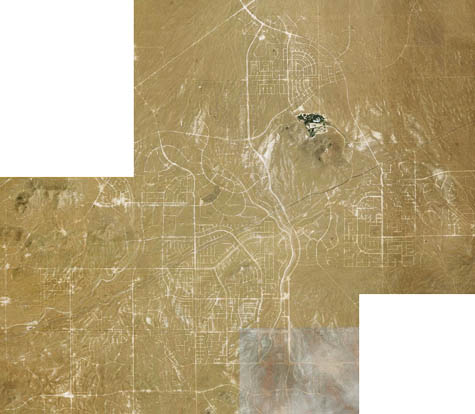Sent to you by moya via Google Reader:
Given the economic crisis, and the signs of abandoned or unsold developments around Las Vegas, I was interested in a link to a post at BLDGBLOG, sent to us by Cassie C., that has some great visuals of part of California City, about 100 miles northeast of L.A., that was abandoned before being built (the development, that is–California City was not abandoned), leaving a grid of empty streets now visible on Google maps:


California City was planned in the late 1950s and early 1960s, when L.A. was experiencing a major boom and houses were increasingly being built in large, pre-planned developments by a single construction firm (Mike Davis discusses the increased concentration in the housing industry in his excellent history of L.A., City of Quartz). Instead of building houses as people requested them, the new business model was to buy a large section of property, build a lot of houses in more of an assembly-line fashion, and then find buyers for them, and with the post-World War II economic boom, and subsequent suburban flight, it worked.
But as these maps, or the partially-completed complexes or completed but empty strip malls many of us pass on the way to work, testify, sometimes things go awry; a particular city doesn't grow as much as the developers thought (California City was supposed to rival L.A. in size), or an economic downturn affects the real estate market in a more widespread manner (see the comments for several readers' summaries of the many factors that have at times played into real estate booms and busts, including policy decisions in both the public and private sectors). And with the planned development housing model, we may be left not with a few unsold houses, but with bizarre ghost towns in varying stages of completion as evidence.
Related posts: the dilemma of the duplex, Michigan and the recession, and economic change hits the mall.
(View original at http://contexts.org/socimages)
Things you can do from here:
- Subscribe to Sociological Images using Google Reader
- Get started using Google Reader to easily keep up with all your favorite sites
.jpg)
No comments:
Post a Comment